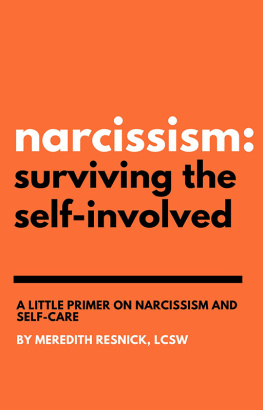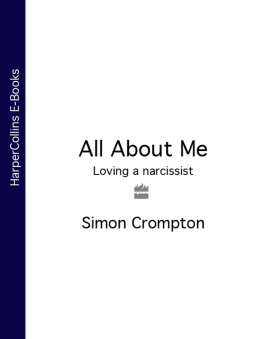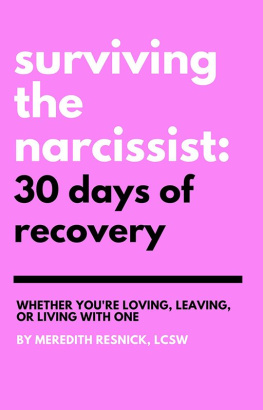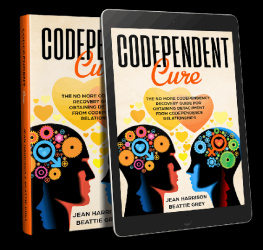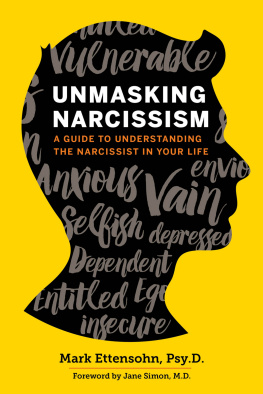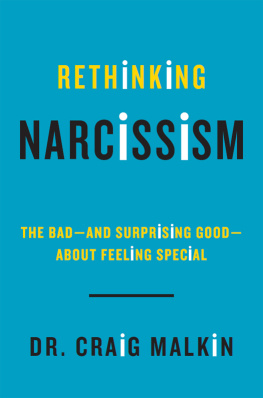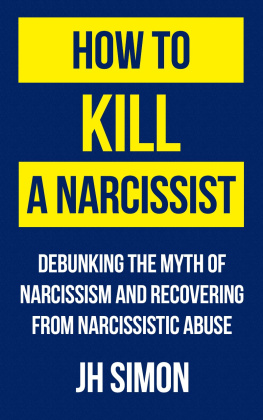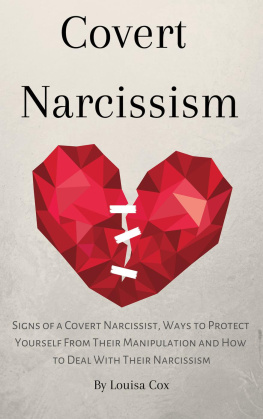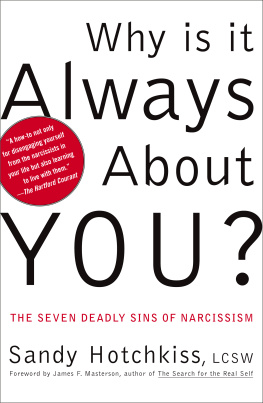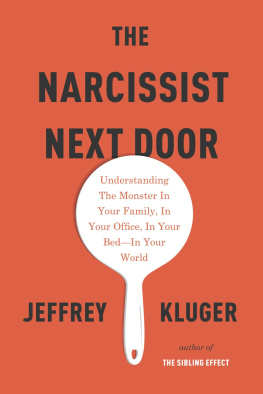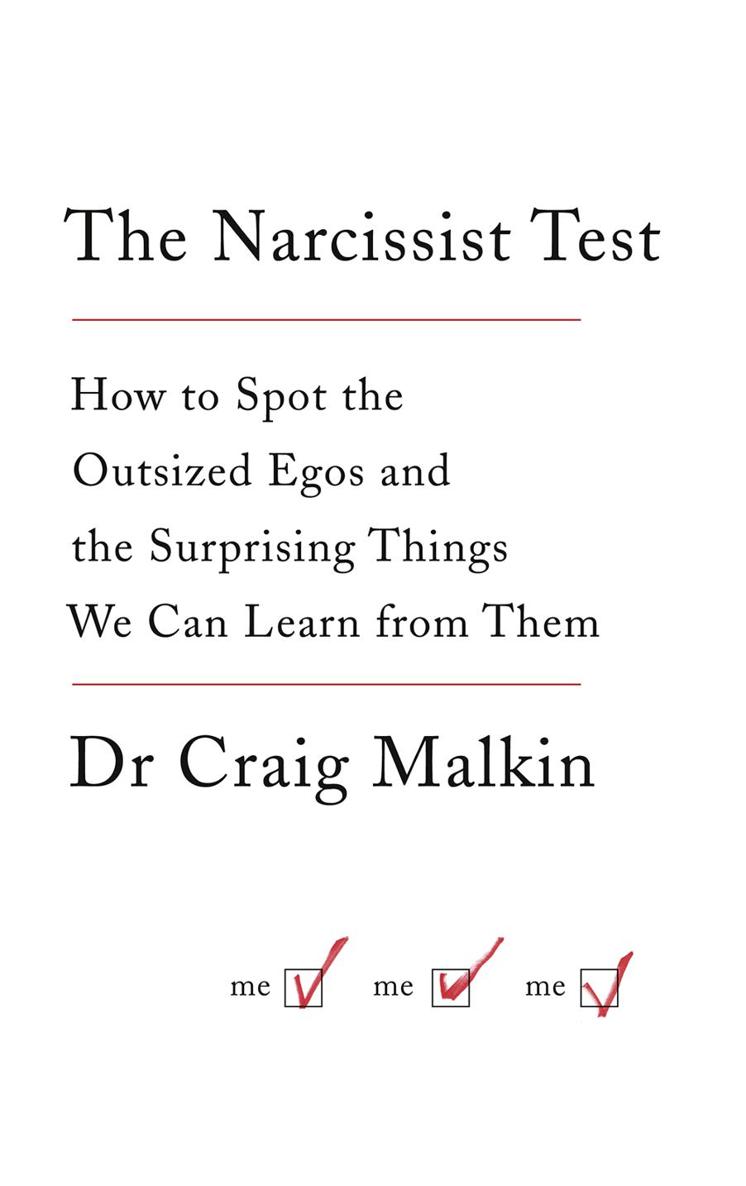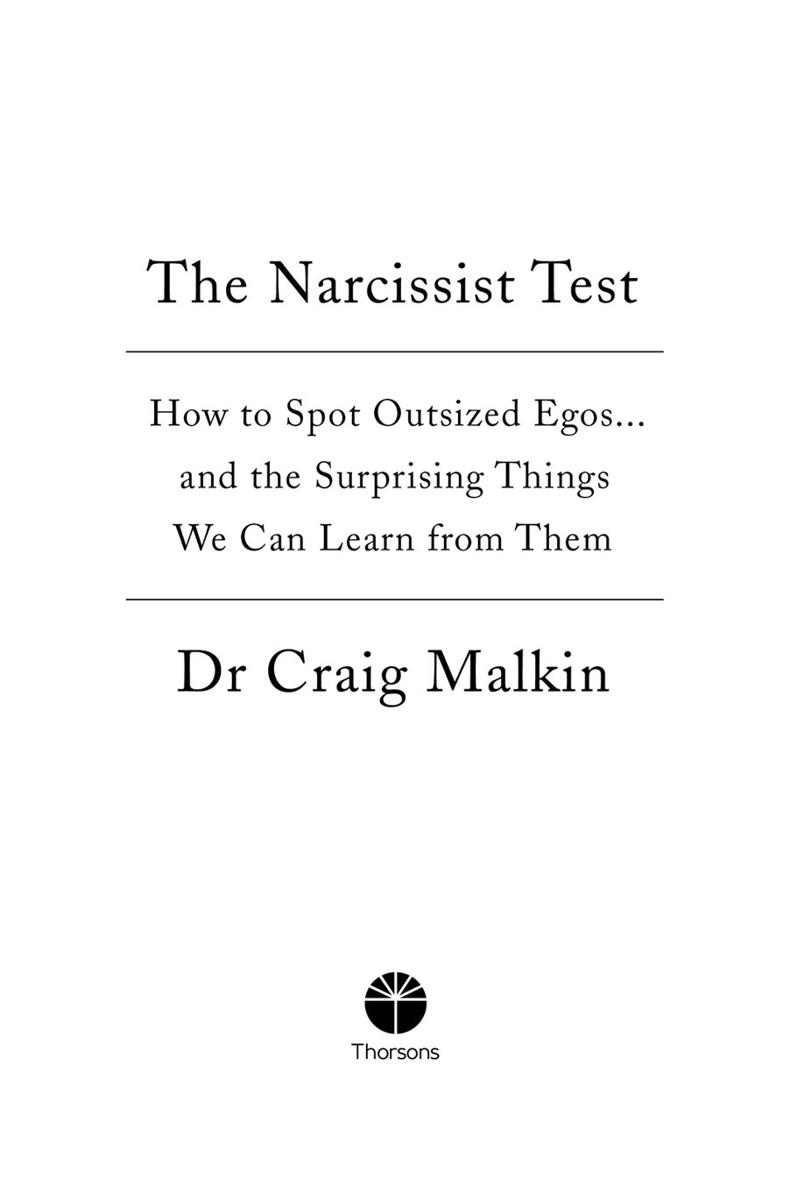Thorsons
An imprint of HarperCollinsPublishers
1 London Bridge Street
London SE1 9GF
www.harpercollins.co.uk
First published in the US by HarperWave, an imprint of
HarperCollinsPublishers 2015
First published in the UK by Thorsons 2015
FIRST EDITION
Dr Craig Malkin 2015
Designed by Jo Anne Metsch
Illustration on page 1: Echo and Narcissus,
by John William Waterhouse, 1903
Cover design Keenan
Cover layout design HarperCollinsPublishers Ltd 2015
A catalogue record of this book is available from the British Library
Dr Craig Malkin asserts the moral right to be identified as the author of this work
All rights reserved under International and Pan-American Copyright Conventions. By payment of the required fees, you have been granted the nonexclusive, non-transferable right to access and read the text of this e-book on screen. No part of this text may be reproduced, transmitted, downloaded, decompiled, reverse engineered, or stored in or introduced into any information storage retrieval system, in any form or by any means, whether electronic or mechanical, now known or hereinafter invented, without the express written permission of HarperCollins e-books.
Find out about HarperCollins and the environment at www.harpercollins.co.uk/green
Source ISBN: 9780007583805
Ebook Edition July 2015 ISBN: 9780007583799
Version: 2015-06-24
For Julie Malkin
Contents
My mother was the most wonderful and infuriating person Ive ever known: she was a narcissist.
I wasnt aware of it for the longest time, not until I was in college and immersed in an introductory psychology text. There, printed in bright bold letters just below a picture of the Greek youth Narcissus staring at his reflection in a pool of water, was the word narcissism. When I read the accompanying description, I remember feeling relieved and horrified all at once. The term perfectly captured the paradox of my mother.
She was the incandescent figure of my childhood, irrepressibly outgoing, infectiously funny, and wonderfully caring. The world seemed to revolve around her. A striking nearly six-foot-tall blonde, with a thick English accent from her upbringing in Great Britain, she seemed to make connections everywhere she wentthe grocery store, the coffee shop, the hair salon. She was devoted to friends, buoying them through illness and hardships, and dedicated to improving her community, whether the project was cleaning up a playground or organizing a bake sale. And as wife to my father and mother to me and my brother, she was always there, generous with her love and counsel.
But her glow gradually dimmed as I, and she, grew older. She seemed to become more self-involved. She bragged about her accomplishments as a young ballet dancer, sometimes making the point by demonstratingawkwardlya split or pli. She name-dropped, boasting of brushes with celebrities (though I could never tell if the encounters were real or imagined). She grew obsessed with her looks, frantically charting wrinkles and chasing spots around her body and starving herself to stay thin. She interrupted people when they spoke, even when they were in the midst of sharing their pain and anxiety. Once, when I tried to tell her of my anguish over a romantic breakup, she dreamily muttered, I never had any trouble finding dates. I was stunned by the non sequitur.
What had happened to my mother? College gave me the word narcissism. But I really didnt understand what it meant. I had so many questions. Had she always been a narcissist and I hadnt recognized it? Was she suddenly pushed to it by circumstance, namely getting older? Could I do anything to get back the loving, unselfish woman I remembered from my childhood?
I devoted myself to finding answers. In the library, I pored over books and articles from Freud onward. As a psychologist in training, I interned with one of the foremost experts on narcissism. I took a postdoctoral fellowship focused on helping personality-disordered clients, hoping to better understand narcissistic personality disorder (NPD), the most extreme form of narcissism. But even though I learned a great deal during those years, my understanding still felt incomplete. Then one day, I saw something that changed my thinking about narcissismin my mother, in my clients, and in myselfforever.
My father had recently died and my wife, Jennifer, and I had undertaken the painful process of moving my mother from a large house far away into a small apartment close to us. The cramped space she found herself in now pushed her over the edge. Lovely place youve found for me, she grumbled sarcastically.
She stayed in a nearby hotel that first night, rolling up in a taxi the next afternoon to meet us at the apartment. We resumed unpacking, mostly in silence and mostly without her help. Before long, my mother disappeared in a taxi again, this time to drop exorbitant sums on decorations.
It went on that way for a weekmy mother staying nights in a hotel, shopping by dayuntil late one evening, she announced, with an exaggerated sigh, I need to get comfortable! She disappeared into the bedroom where we heard her rustling through boxes. Moments later, she reappeared wearing four-inch stilettosManolo Blahniks, she proudly informed us. There, she said, sighing, I can relax now. At least my shoes are better than this place. The shoes, apparently, made her feel special.
Thats when it hit me. My mother used feeling special as a crutchsomething to prop herself up when she felt scared or sad or lonely. Instead of turning to me, my brother, Jenniferor anyoneto talk about how frightened she was about living alone, she relied on feeling better than other people. (In her Manolos, she literally was above most people.) It hadnt been so necessary to make herself feel special when she was youngerothers did the job with their attention and compliments. But as she aged and her looksthe source of much of her confidencefaded, she grew to believe that she had very little to offer and she withdrew from social and civic life. She had to find another way to stand out and prove to herself that she was special.
Thinking of narcissism this wayas a habit people use to comfort themselvesshowed me a much clearer, simpler path to coping with my mother. I could see what made her narcissism rise and fall. I could see how and why it became destructive. I could even see how to help her to set it aside and talk honestly about her pain.
My search to understand my mother led me to another epiphany as well: narcissism isnt all bad. In fact, some narcissism is goodeven vitalfor us to lead happy, fulfilled, and productive lives. Feeling special, Ive discovered, can make us better lovers and partners, courageous leaders, and intrepid explorers. It can make us more creative, and it might even help us live longer.
Numerous studies confirmed much of what Id seen growing up. The traits I so admired in my mother when she was youngher warmth, optimism, and activismwere fueled in great part by her narcissism. Her sense that she was special gave her conviction, confidence, and courage. It allowed her to believe that she had wisdom to effect change in the world, the ability to pull off just about anything she set her mind to, and the nerve to go ahead and try. Narcissism was her launching pad. It made her an engaged parent and energetic community leader. And it made her believe not just in herself but in others as welland they felt that assurance.


